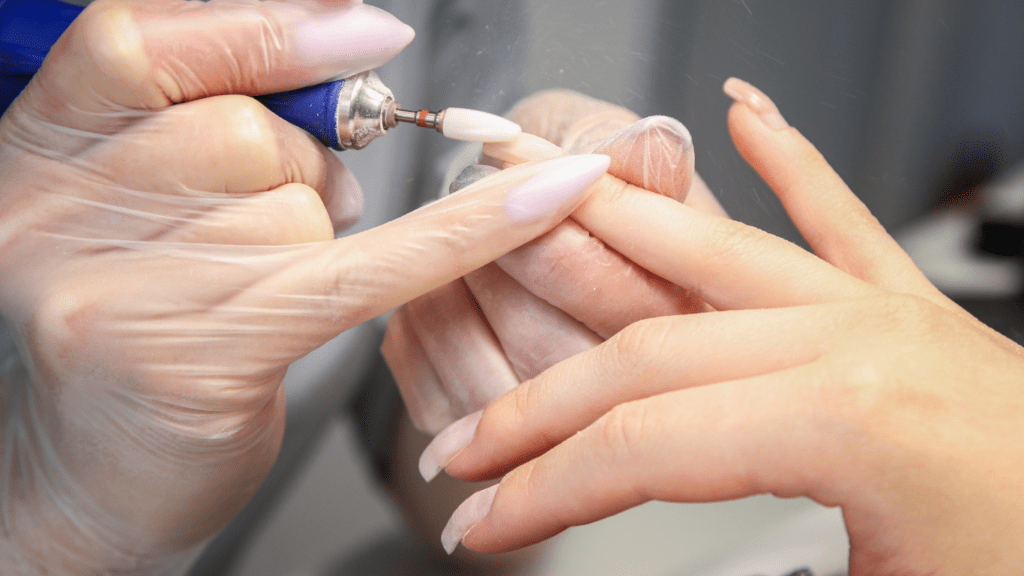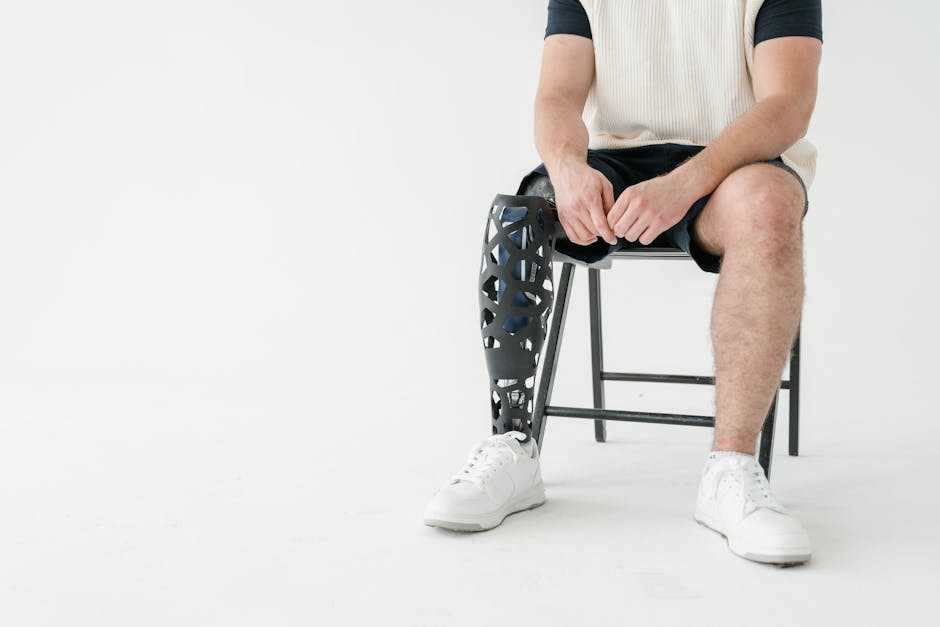Understanding Nail Health
Healthy nails are smooth, with a consistent color and no visible spots. Recognizing the difference between healthy and unhealthy nails is key to effective nail care.
Signs of Healthy vs. Unhealthy Nails
Healthy nails appear smooth and unspotted. They show a consistent pinkish color and have a uniform surface. Unhealthy nails may have discoloration, spots, or ridges.
Brittle nails that break easily signal underlying health issues or nutritional deficiencies.
Common Nail Problems and Their Causes
Several nail problems arise from different causes:
- Nail Discoloration: Yellow nails usually indicate fungal infections. Green nails point to bacterial infections.
- Brittle Nails: Frequent wetting and drying of hands lead to brittleness. A lack of biotin or other vitamins also contributes.
- Nail Pitting: Small depressions on the nail surface, often linked to psoriasis.
- Ridges: Vertical ridges are common with aging. Horizontal ridges may suggest a severe illness or nail trauma.
Understanding these signs can help address root causes and maintain nail health efficiently.
Essential Nutrients for Nail Strength
Healthy nails aren’t just about external care; internal nutrition matters too. Consuming essential vitamins and minerals strengthens nails and supports overall nail growth.
Vitamins Essential for Nail Growth
Vitamins play a key role in nail growth. Biotin (Vitamin B7) is known to enhance nail strength. A daily biotin intake boosts keratin production, which is vital for nail health.
Vitamin E also aids in nail growth, offering antioxidant protection. Consuming foods like almonds and spinach supplies this nutrient.
Vitamin C helps in collagen production, another crucial element for nail structure. Citrus fruits and strawberries provide ample Vitamin C.
Minerals That Improve Nail Health
Minerals contribute significantly to nail health. Magnesium supports protein synthesis, crucial for strong nails. Green leafy vegetables and nuts are excellent sources.
Zinc promotes nail repair and cell growth. Foods like oysters and pumpkin seeds are rich in zinc. Iron prevents brittle nails. Lean meats, lentils, and fortified cereals offer high iron levels.
Calcium strengthens nails from within. Dairy products and fortified plant-based milks are great sources of calcium.
| Nutrient | Role in Nail Health | Sources |
|---|---|---|
| Biotin | Enhances keratin production | Eggs, nuts, seeds |
| Vitamin E | Provides antioxidant protection | Almonds, spinach |
| Vitamin C | Assists in collagen production | Citrus fruits, strawberries |
| Magnesium | Supports protein synthesis | Green leafy vegetables, nuts |
| Zinc | Promotes nail repair and growth | Oysters, pumpkin seeds |
| Iron | Prevents brittle nails | Lean meats, lentils, fortified cereals |
| Calcium | Strengthens nails | Dairy products, fortified plant-based milks |
Integrating these vitamins and minerals into your diet keeps your nails healthy and strong. Consistent nutrition complements other nail care habits, ensuring optimal results.
Daily Nail Care Routine
Maintaining a daily nail care routine keeps nails healthy and strong. Consistent care prevents common issues like breakage or infections.
Cleaning and Hydration Tips
Proper cleaning and hydration promote nail health. I wash my hands with mild soap and water, scrubbing gently around the nails. I use a soft brush to remove debris under the nails. Harsh chemicals weaken nails, so avoiding them is essential.
For hydration, I apply cuticle oil daily. Cuticle oil keeps the skin around nails moist, preventing dryness and cracking. To lock in moisture, I use a hand cream after washing my hands.
Moisturizing regularly ensures nails and surrounding skin stay healthy.
Trimming and Shaping Techniques
Correct trimming and shaping techniques prevent nail damage. I trim my nails straight across using nail clippers. Trimming nails straight helps avoid ingrown nails.
I file the edges in one direction with a fine-grit nail file to smoothen them.
For shaping, I avoid using metal files as they can cause splits. I prefer emery boards or glass files for gentle shaping. I shape my nails into a slight curve to maintain their natural form and prevent snagging.
These simple daily steps keep nails in optimal condition and reduce the risk of nail health issues.
Advanced Nail Care Tips
Proper nail maintenance extends beyond daily routines. Exploring advanced methods can greatly enhance nail health and appearance.
The Role of Supplements in Nail Health
Supplements significantly impact nail strength and growth. Biotin is essential for promoting nail thickness and reducing brittleness.
Harvard Health recommends a daily dose of 2.5 mg for noticeable improvements. Vitamin E helps in repairing damaged nail beds, while Vitamin C aids in collagen formation, vital for nail structure.
Minerals like Magnesium, Zinc, Iron, and Calcium should be included in your diet to prevent deficiencies that can result in weak nails.
- Biotin: Strengthens nails, reduces brittleness (2.5 mg/day)
- Vitamin E: Repairs damaged nail beds
- Vitamin C: Aids collagen formation
- Magnesium: Prevents weak nails
- Zinc: Supports new nail growth
- Iron: Prevents nail ridges
- Calcium: Essential for nail hardness
Professional Treatments Worth Considering
Professional care offers targeted solutions for specific nail problems. Gel manicures provide a durable, long-lasting finish but must be done correctly to avoid damage.
Dip powder manicures strengthen nails and offer a variety of colors. For hydration, paraffin wax treatments deeply moisturize the skin around the nails, preventing cracks and dryness.
Regular visits to a qualified nail technician ensure proper cuticle care and can diagnose any underlying nail issues early.
- Gel Manicures: Durable finish, must be applied correctly
- Dip Powder Manicures: Strengthens nails, variety of colors
- Paraffin Wax Treatments: Deeply moisturizes, prevents cracks
- Qualified Nail Technician Visits: Ensures cuticle care, early diagnosis of issues
Protective Measures against Damage

Maintaining healthy nails involves more than just regular care routines. It’s crucial to protect nails from potential damage caused by external factors.
Choosing the Right Nail Products
Using the right nail products can significantly influence nail health. I always opt for nail polishes and removers that are acetone-free since acetone can cause dryness and brittleness.
When selecting nail hardeners, it’s best to avoid those containing formaldehyde, which can make nails hard but brittle.
Moisturizing cuticle oils, which often contain ingredients like jojoba oil and vitamin E, keep the nail beds hydrated and flexible. For hand creams, I look for those with ingredients like shea butter and glycerin for their deep moisturizing properties.
Tips to Avoid Common Nail Damages
Adopting certain habits can prevent common nail damages. I avoid using my nails as tools since this can cause breakage or even painful nail bed injuries.
Wearing gloves while doing household chores like washing dishes or gardening protects nails from harsh chemicals and soil. Regularly trimming my nails keeps them at a manageable length, reducing the chances of snagging or tearing.
Additionally, keeping nails smooth by gently filing them in one direction prevents splitting. Hydrating both nails and cuticles with non-irritating lotions further guards against cracks and brittleness.


 Nicoleeny Castrolos, the founder of Body Care And Matter, is a passionate advocate for health and wellness. With a deep commitment to improving the lives of individuals, Nicoleeny has built a platform dedicated to delivering the latest insights on men’s and women’s health, nutrition, and mental wellness.
Nicoleeny Castrolos, the founder of Body Care And Matter, is a passionate advocate for health and wellness. With a deep commitment to improving the lives of individuals, Nicoleeny has built a platform dedicated to delivering the latest insights on men’s and women’s health, nutrition, and mental wellness.

